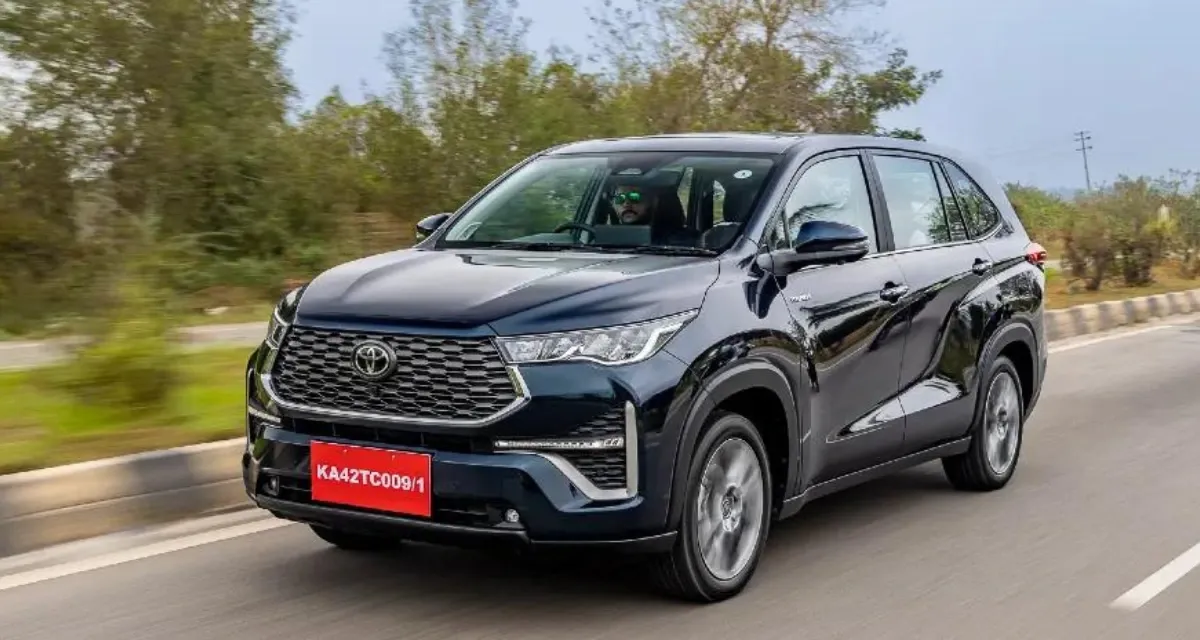

In recent years, the Indian automotive landscape has seen growing acceptance and adoption of strong hybrid vehicles. Examples include the Maruti Grand Vitara and Toyota Innova Hycross. Despite the lack of regulatory support for this electrified technology. CRISIL MI&A (Credit Rating Information Services of India Limited Market Intelligence & Analytics) is an independent data-driven research and analytics organization. It projects that the market share of strong hybrid vehicles is expected to increase significantly.
According to their data, strong hybrids account for 2.2 percent market share as of fiscal year 2024. However, this number is expected to rise to between 13 and 16 percent by fiscal year 2029.
CRISIL MI&A's projection suggests that the market share of EVs currently at 2.3 percent, could reach 20 percent by FY2029. Battery electric vehicles for private buyers are not receiving central government incentives at this time. The technology still enjoys more global support than hybrids. The growth of strong hybrid vehicles holds more importance. This is due to several factors.
The price jump from ICE (internal combustion engine) models to equivalent EVs is significantly higher than the price jump from ICE to equivalent strong hybrid models. The higher initial investment for EVs can be hard to recover. This happens unless you drive the car for an unusually high number of kilometers. In contrast, strong hybrid cars have a relatively lower price premium over equivalent ICE cars. The premium is easier to justify.
Switching from ICE to electric vehicles is not only more expensive but also presents inherent barriers. EV adoption depends on a developing charging infrastructure. This infrastructure is not yet reliable. It is not widely available in many cities. Electric vehicles regardless of their premium status, often induce range anxiety. They force long journeys to be planned around charger availability.
Most strong hybrid cars in India do not require separate charging stations. They use the petrol engine to regenerate electric power. This makes them as convenient as typical ICE models. Strong hybrids do not rely on additional infrastructure beyond existing petrol pumps. That makes them hassle-free and more reliable for longer journeys.
While ICE cars will eventually become obsolete strong hybrid vehicles serve as a practical medium for the ICE to EV transition. The all-electric future is still distant. Strong hybrid cars are expected to gain more market share. More options will enter the Indian market in the meantime.
Currently, all strong hybrid mass-market cars in India are from Japanese carmakers. These include Maruti Suzuki Toyota and Honda. These manufacturers plan to introduce more models in the coming years.
Global brands like Hyundai, Kia Volkswagen, and MG are also expected to enter the strong hybrid space. These will include cars spanning different segments and price ranges. Additionally, more plug-in hybrids such as the BMW XM are likely to enter the premium segment.
Homegrown carmakers like Tata and Mahindra have invested heavily in developing their EV portfolios. They are not expected to enter the strong hybrid segment. Instead, these brands will contribute to increasing the market share of EVs.
The next few years will be exciting for both strong hybrids and electric vehicles. Many new models are expected to launch in both categories. Would you prefer a strong hybrid over an EV for your next car purchase? Let us know in the comments below.
Also Read: